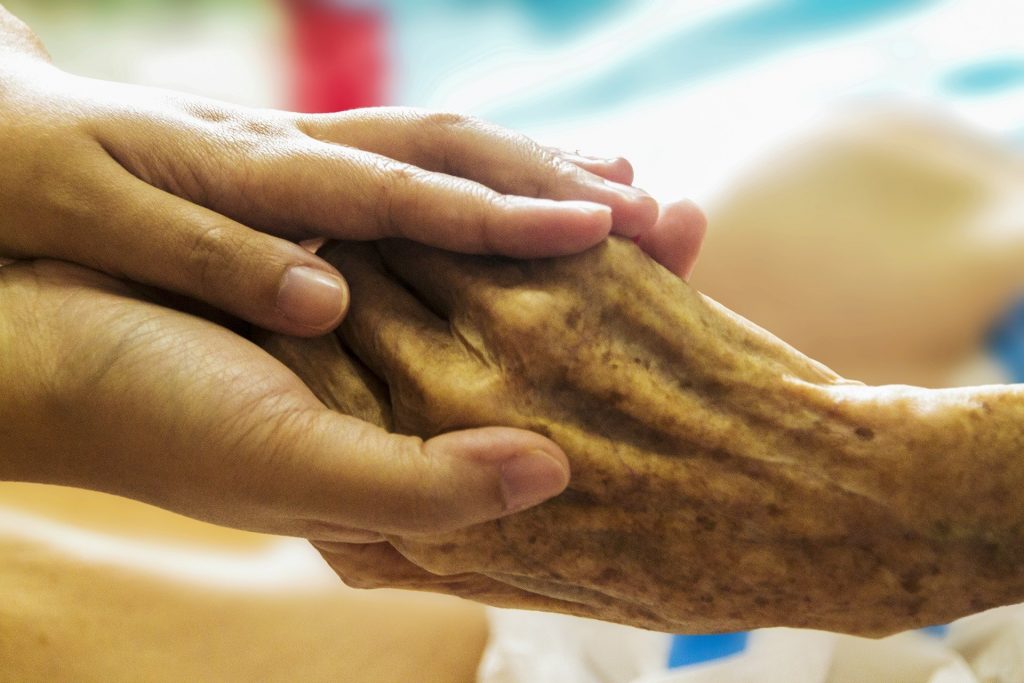Hospice of Michigan Volunteer Shares Her Caregiving Experience During the Pandemic
The pandemic has prevented in-person connection, which is usually a cornerstone of care, between volunteers and patients.

At the center of hospice care is the goal to provide comfort, peace and a sound quality of life for patients in the final phase of illness and their loved ones. This foundational design, along with care that comes from volunteers across various capacities, is an essential part of their service mission.
“Volunteers are really integral to the hospice team, supporting the caregivers and bringing both the patient and caregiver joy.” — Alison Wagner, Volunteer Program Director at Hospice of Michigan
“Whether it be reading to them, playing cards, having coffee… all of these things just bring so much joy into days that are filled with a lot of different tasks and supporting a patient at home,” says Alison Wagner, Volunteer Program Director at Hospice of Michigan. “Volunteers are really integral to the hospice team, supporting the caregivers and bringing both the patient and caregiver joy.”
Since COVID, however, much of the in-person magic and connection that’s normally a highlight for hospice patients have been altered and limited to virtual interaction and phone calls.
Kelley Root, editor of Crain’s Detroit Business, connected with Hospice of Michigan after adopting Guppy, her laid-back and people-loving Chihuahua in 2015 and learned about their pet volunteer program, through Facebook. By the spring of 2018, Root was assigned to a “wonderful woman” who lived in a small residential facility. She and Guppy made regular visits.

“He would sit on her bed and she would just love to pet and cuddle him,” Roots shares. “I thought this program was going to be more about the patient relating to the animal but it really, over the course of two years that I visited her, it was clear to me that the touch and connection to the animal were really important, but reaching out to the human connection and having conversations with me was all of it. We really formed a bond.”
Then, COVID-19 changed everything.
“She was very physically compromised, bed-ridden 24-7 and visually impaired so she couldn’t really see me or Guppy but she could feel and touch him,” Root shares. “So the pandemic was hugely disruptive and unfortunate for us. I couldn’t see her in person and that was really tough. She got her medical visits but she missed time with Guppy and human interaction that (brought joy and quality of life). It took that type of comfort away.”
Through weekly phone calls, the pair kept their connection. Unfortunately, before having a final in-person visit as COVID looms, the “wonderful woman” passed away.
People not being able to be with their loved ones in their final moments has been a difficult aspect of the pandemic. Now, with adequate PPE, Wagner says, her team is equipped to safely conduct home visits – a preference for many caregivers, according to a study currently being done by Hospice of Michigan.
“You don’t have to do it alone. There’s so much that goes into the dying process – weeks, months – and what’s a beautiful part of Hospice is that we have this interdisciplinary team. In addition to the volunteers, there’s a social worker, nurse, spiritual care advisor, physician. We have grief support managers, hospice aides and a variety of art therapies,” she says.
“All you really have to do is call us and there’s someone you can talk to who will help steer you on the right path.”
Click the audio player above to hear Kelley Root share more of her experience caring for her hospice patient. Plus, learn more about Hospice of Michigan programs and services.
Trusted, accurate, up-to-date
WDET is here to keep you informed on essential information, news and resources related to COVID-19.
This is a stressful, insecure time for many. So it’s more important than ever for you, our listeners and readers, who are able to donate to keep supporting WDET’s mission. Please make a gift today.
